DnD Druid class guide: How to become one with nature
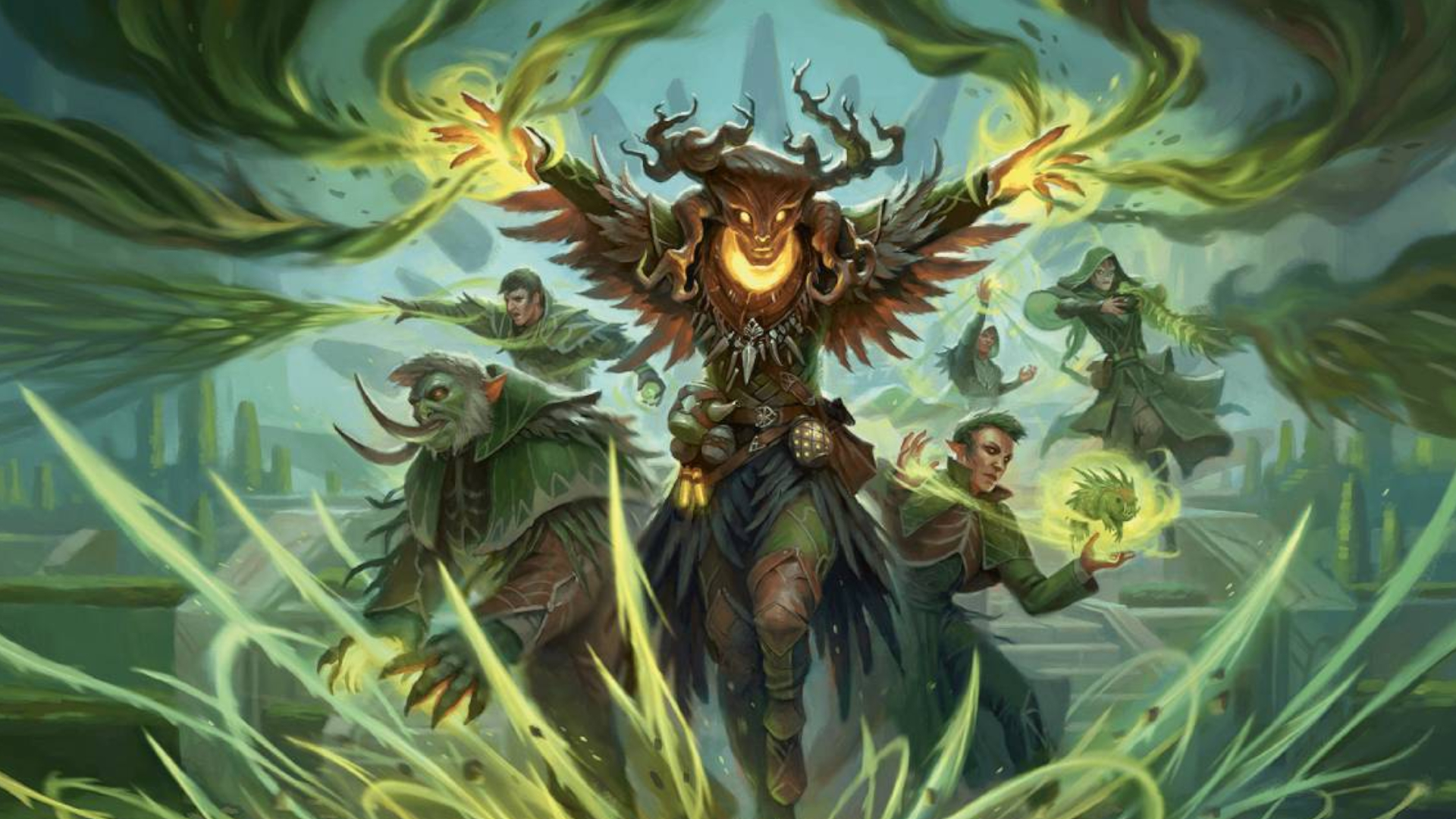
1. Essential info
2. Pros & cons
3. Best stats
4. Best races
5. Best background
6. Best feats
7. Best spells & cantrips
For the animal-lovers amongst us, the DnD Druid is the perfect choice of class. Not only will you get to shape-shift into all manner of furry and feathered friends, but you’ll also have the knack for befriending other critters on your adventures. Not that animals are the only thing you can control, of course; you’ll be playing with the elements, calling forth earth, fire, and water at will (providing you have the spell slots for it, of course!)
You might have taken a shine to the DnD Druid class after seeing Doric the Tiefling transform into a fly to spy on an unwitting Hugh Grant in Dungeons & Dragons: Honor Among Thieves. Or, and this is much more likely, you caught a glimpse of *that scene* with Halsin in bear-form from Baldur’s Gate 3 and haven’t been able to get it out of your head since. But regardless of whether or not you also want to bear all, the Druid is an eclectic class with lots to offer. This might make it tricky for new players, particularly as you’ll need to get to grips with not only everything your Druid can do, spells and all, but also the menagerie of creatures you can transform into, but it is worth the learning curve for all the different ways you can tackle obstacles. Magical item just out of reach? Become a bird! See someone walking towards you but don’t fancy talking? Turn into a cat! If only we could do the same in real life…
If this all sounds a bit overwhelming, don't worry – here's everything you need to know on how to create your first character in D&D. Our guide will give you everything you need to make an adventuring hero. And if you're not dead-set on playing a Druid, it's worth checking in with our roundup of the best D&D class for beginners.
DnD Druid: essential info
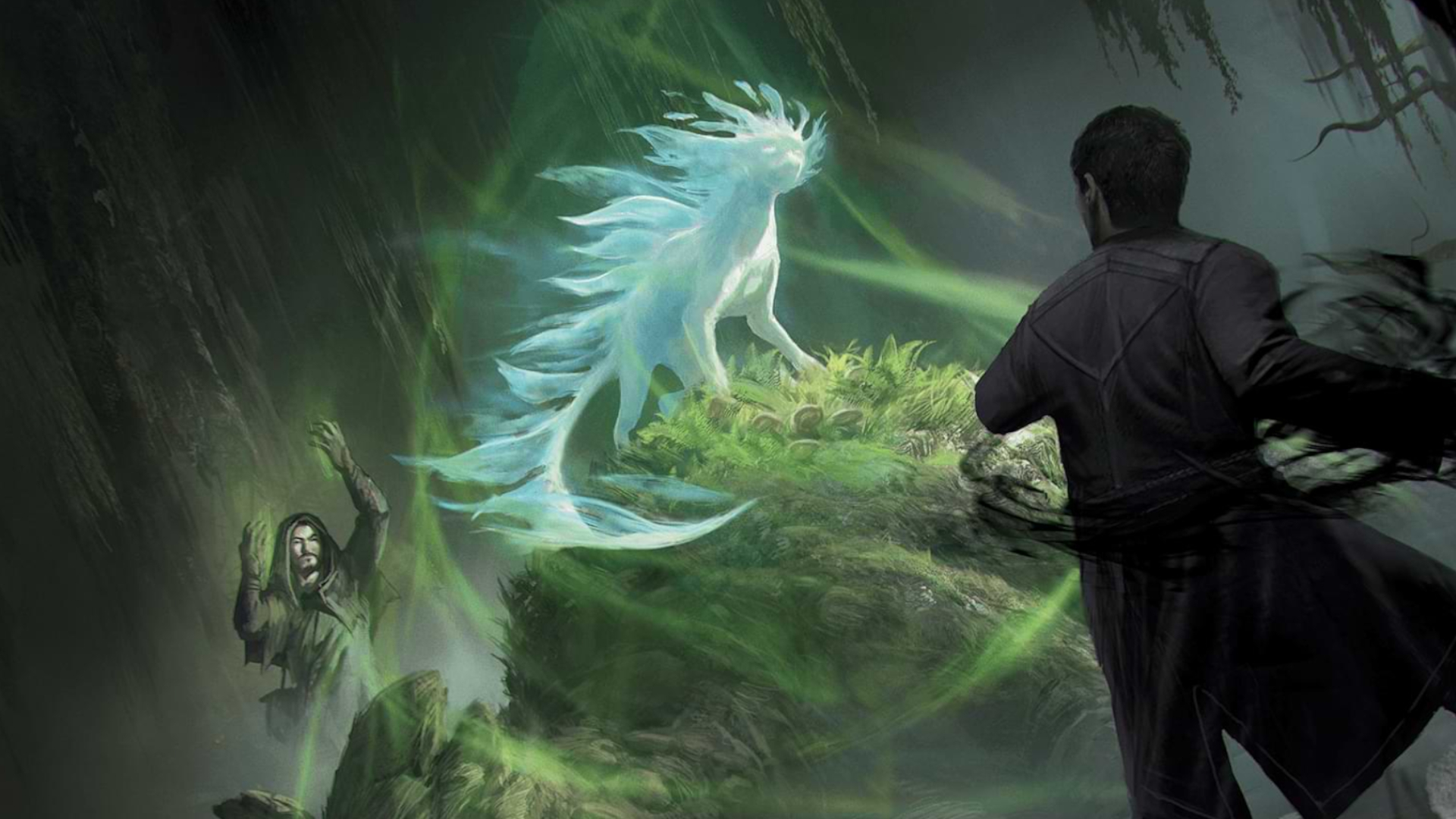
| Type | Support / magic-user |
| Complexity | Moderate |
| Available in | Basic rules, Player's Handbook (additional subclasses in Xanathar’s Guide to Everything and Tasha’s Cauldron of Everything) |
| Play if you like | Halsin and Jaheira from Baldur’s Gate 3, Keyleth from Critical Role, Radagast from The Hobbit |
Although Druids don’t immediately come to mind when thinking of tanky DnD classes, their wild shape ability allows them to become whatever the team needs, making them a little bit of everything. They can heal, they can buff, or, with the right subclass, they can simply take a huge chunk out of enemies in bear-form.
So, if you’re someone who finds more traditional sword-and-shield fighting a little bit dull, this is the perfect class to try out!
A final note on what you need to play - while you're good to go with the free Basic Rules or if you've bought the Player's Handbook, it's worth considering Tasha's Cauldron of Everything for the ultimate Druid build as well. This sourcebook contains plenty of extra subclasses to spice things up, like a star-powered spellcaster or one that uses fungal spores to create zombie minions.
Should you play a DnD Druid?
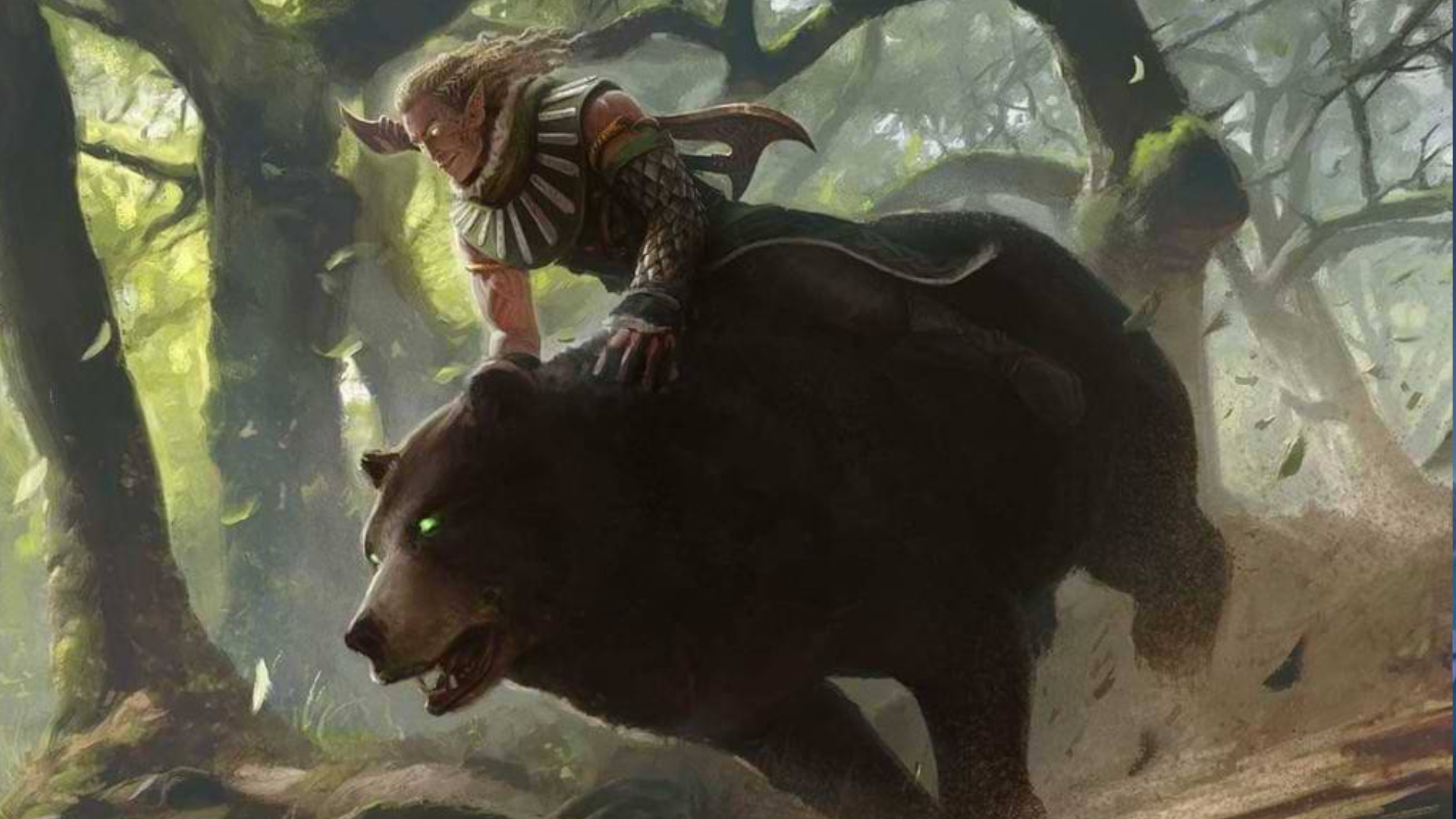
DnD Druids lend themselves to plenty of interesting roleplaying opportunities – perhaps you were raised by wolves, or amongst a forest clan who live off the land – and your subclass or the spells you take can support plenty of different types of storytelling. Naturally, you can keep things simple instead by playing a grumpy old druid who likes to turn into a bird and peck people in the eyes. We won’t judge.
Weekly digests, tales from the communities you love, and more
Play this class if...
✅ You want plenty of gameplay options to support different scenarios
The multiple Wild Shape options, ranging from a badger to a constrictor snake, mean you can assess each situation individually and become what is needed in the moment. Druids are a class that require spell preparation, too, which means you can only access a handful of your spells at any given moment, so tailoring your play to the adventure you’re embarking upon is essential and can be incredibly satisfying when pulled off.
✅ You want to play with the elements
Druids are, of course, the nature-loving class, and so their spell options are environmentally flavored. As we saw in the druid grove in Baldur’s Gate 3, Druids are a tight-knit bunch, and you even know druidic, their secret language.
Don't choose this class if...
❌ You’re not a planner
As previously mentioned, the DnD Druid is one of the spellcasting classes that needs to choose and prepare their spells after a long rest. This means you need to think about the adventure to come and select spells you think will be helpful. This also means, if you aren’t good at thinking ahead, you might find yourself without an invaluable spell that could be the difference between a critical success and your friend rolling death saves.
❌ You want something simple
If you want to cast spells but don’t want something too finicky, you might be better off with a Bard, arguably one of the easiest of the spellcasting classes to begin with. Or, if you just want something super simple to start off with, a Fighter or Ranger might be the way to go.
DnD Druid: best stats
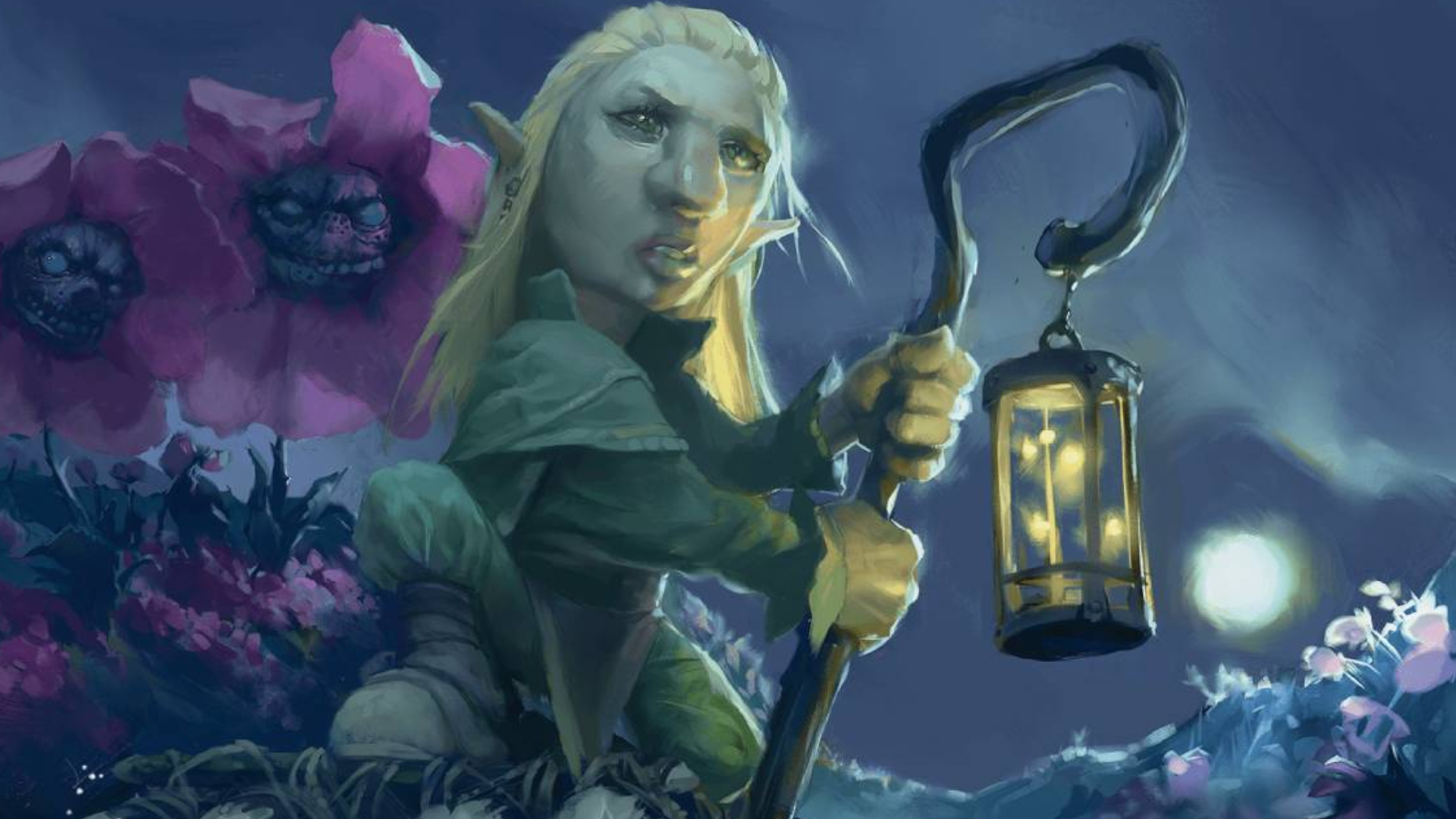
As with all the best tabletop RPGs, attributes play a huge role in this game - they'll dictate your character's strengths and weaknesses. Ranking by importance, this is how you'll want to prioritize your attributes when creating your DnD Druid:
- Wisdom
- Constitution
- Dexterity
- Intelligence
- Charisma
- Strength
Given that Wisdom is the spellcasting ability for DnD Druids, you’ll want to make sure that is your highest stat. You can never go wrong with a high Con either, given that Constitution is what determines how many hit points your character has. Likewise, Dexterity (which dictates a character's Initiative bonus and Armor Class) is always a safe bet.
The bottom three are relatively interchangeable, and aside from playing a numbers game, it’s always worth thinking about who you want your character to be when deciding where to add your points. If your Druid was raised outside of society with only squirrels for company, maybe they won’t be the most charismatic character going, whereas the Nature skill comes under your Intelligence, so that could be worth investing in. Think about what will lend itself well to who you want to play, not just how well you want them to be able to swing a sword.
DnD Druid: Best races
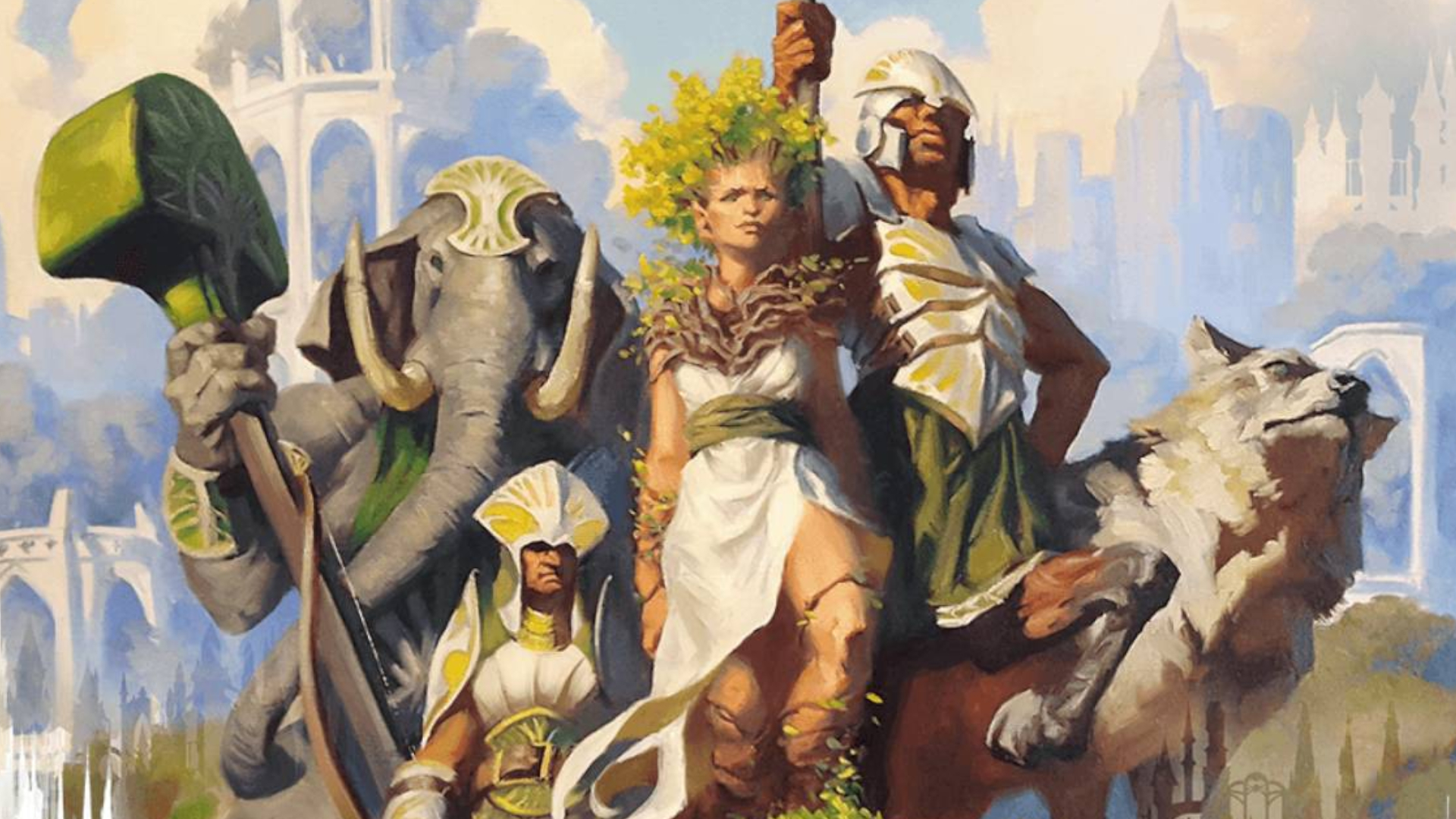
When it comes to choosing what race (or as they’re now known, species) to play as, it makes sense to opt for one with an affinity for the natural world. It also makes sense, however, to choose a race that can offer a boost to Wisdom, given that it is your most important stat as a DnD Druid. Here are some potential options:
- Wood Elves (Player's Handbook)
- Human (Player's Handbook)
- Mountain Dwarf (Player's Handbook)
- Aarakocra (Monsters of the Multiverse)
- Firbolg (Monsters of the Multiverse)
A Wood Elf Druid is hardly the most original combination in a Dungeons and Dragons setting like the Forgotten Realms, but this classic pairing is popular for a reason. They gain +1 Wisdom and +2 Dexterity, same as the Aarakocra, and their Mask of the Wind ability means they can hide easily in natural environments. Meanwhile, the Firbolg gets a healthy +2 to Wisdom, and the Mountain Dwarf and Human can choose their ability boosts. Choose any of these races to ensure your Druid is a real wise guy.
DnD Druid: Best background
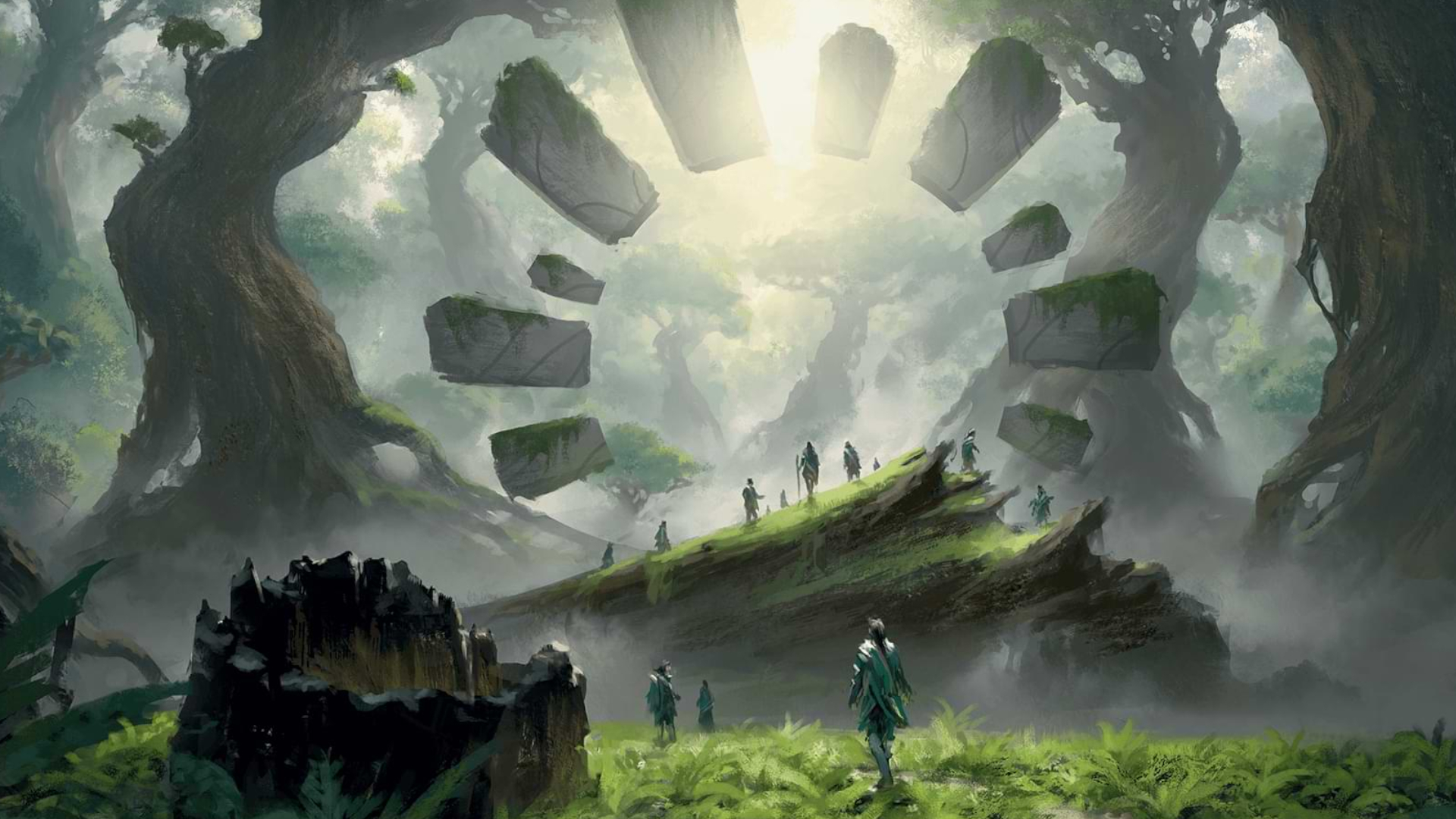
Character backgrounds are a great opportunity to flesh out your character and what their life was like before they (presumably) met five other strangers in a tavern, all willing to go on an adventure together.
Some backgrounds that make thematic and mechanical sense for a DnD Druid would be:
- Hermit (Player's Handbook)
- Outlander (Player's Handbook)
- Sage (Player's Handbook)
The Hermit, unsurprisingly, grew up outside of society, and as a result has a knack for the Medicine and Religion skills. Meanwhile, the Outlander is something of a nomad with proficiencies in both Athletics and Survival.
If you want your Druid to be more of the Scholarly type, though, the Sage background benefits from two additional languages and two skills. And the chances to customize your character don’t stop there…
DnD Druid: Best feats
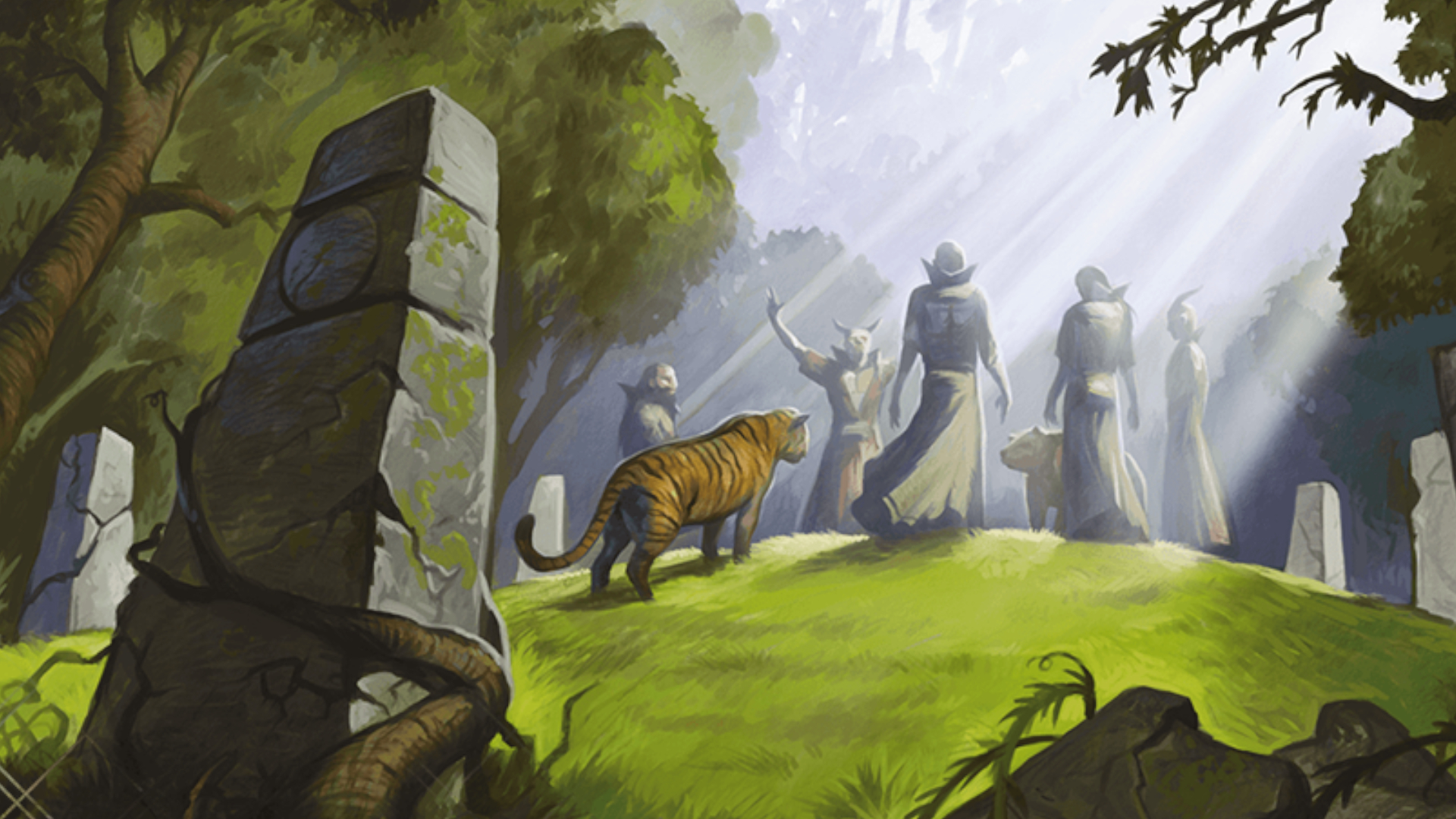
Release the feats! Another great way to make your character truly your own, it’s worth thinking about which feats help you tell the story you want to tell. However, some feats that grant benefits that would be particularly useful to a DnD Druid include:
- Observant (Player's Handbook)
- Chef (Tasha's Cauldron of Everything)
- Telekinetic (Tasha's Cauldron of Everything)
- Fey Touched (Tasha's Cauldron of Everything)
Observant, Chef, and Telekinetic are great choices, all of which would grant a +1 to wisdom, with the Chef feat in particular lending itself to some fun role playing scenarios.
Fey Touched is an incredibly useful Feat, on the other hand, as you not only gain a +1 in Wisdom, but also the spell Misty Step ability which isn’t normally a Druid spell. It’s worth thinking how or why your character will have been Fey Touched, though. As great of a feat as Fey Touched may be for your DnD Druid, if they’ve spent their entire life in a shack in the woods, maybe it doesn’t make sense that they would have been Fey Touched. Min-Maxing will only get you so far in your DnD campaign, so make sure to think about how to build a character you’ll enjoy playing for however long your campaign will run.
DnD Druid: Best spells and cantrips
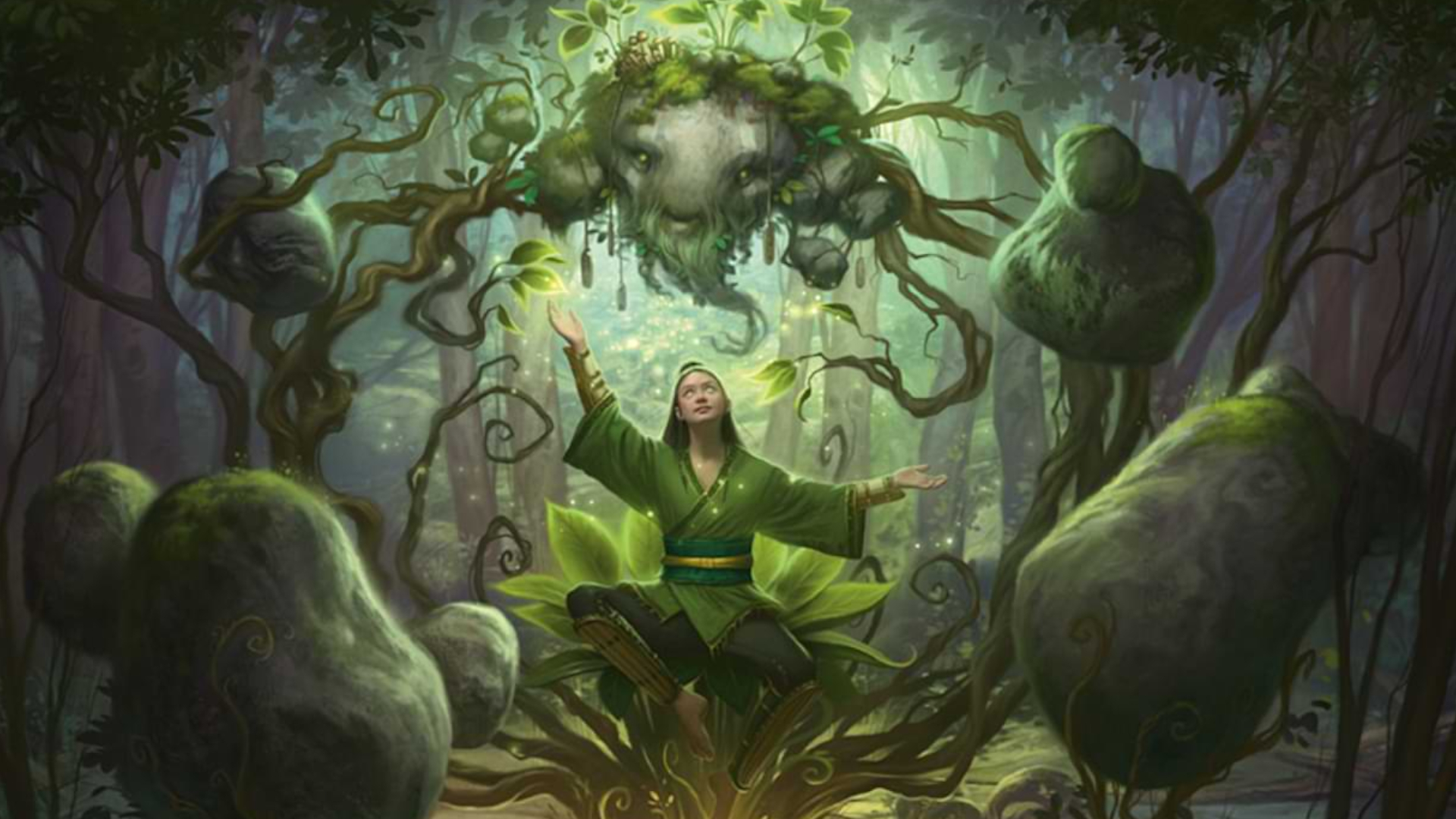
At 1st level, your DnD Druid knows 2 cantrips and has 2 1st-level spell slots. This is far from the highest number of spells known amongst the DnD classes, but luckily you have some particularly useful cantrips at your disposal, which you can cast an unlimited number of times without it impacting your spells lots. It’s also worth repeating that Druids are one of the classes that require you to prepare your spells after a long rest, so you are not limited to how many spells you know, simply how many you can have prepared for that day.
Regardless, we’ve shared some of our top picks for your DnD Druids spellcasting repertoire:
Cantrips
- Guidance
- Thorn Whip
- Produce Flame
Level 1 spells
- Detect Magic
- Healing Word
- Absorb Elements
- Faerie Fire
An adventuring party without a member who can cast Guidance is like a broken vorpal sword – pointless. And before long, it will become muscle memory to shout "Guidance!" ahead of a friend attempting an ability check.
Thorn whip is another great cantrip which, as well as dealing damage, can pull enemies in your direction. This is incredibly useful for any enemies above you, or if there is a spell that causes a specific area of effect that you want to drag unsuspecting foes through.
As for Detect Magic, it's another spell you won’t want your party as a whole to be without. That's because it can stop them walking headfirst into all manner of tricks and traps.
An adventuring party without a member who can cast Guidance is like a broken vorpal sword – pointless
If you have multiple spellcasters in your party, particularly if one of those is a DnD Cleric, it may not be as crucial to have Healing Word, but hey - it’s always nice to be able to pick up and dust off one of your friends if they’re downed in combat.
Absorb Elements is an equally useful spell as it allows you to lessen incoming acid, lightning, cold, fire or thunder damage. You can then throw it back in your enemies face on your next turn.
Finally, Faerie Fire is a great supporting spell that (if successful) allows you and your friends to roll with advantage when attacking the affected creatures.
For more from tabletop RPGs, be sure to check out our guide on how to play DnD online, how to write a DnD campaign, and our chat with the developers on how to make a DnD horror story.
Ellen Causey is the former Video Producer of GamesRadar+. She was chiefly responsible for recording voice overs and presenting videos for you lovely lot on a daily basis across GR's YouTube and Twitch channels. Ellen can now be found directing, editing, scripting, and producing video content for the wider games industry, and is currently creating fresh and original work for the fine folks over at Logitech G.


